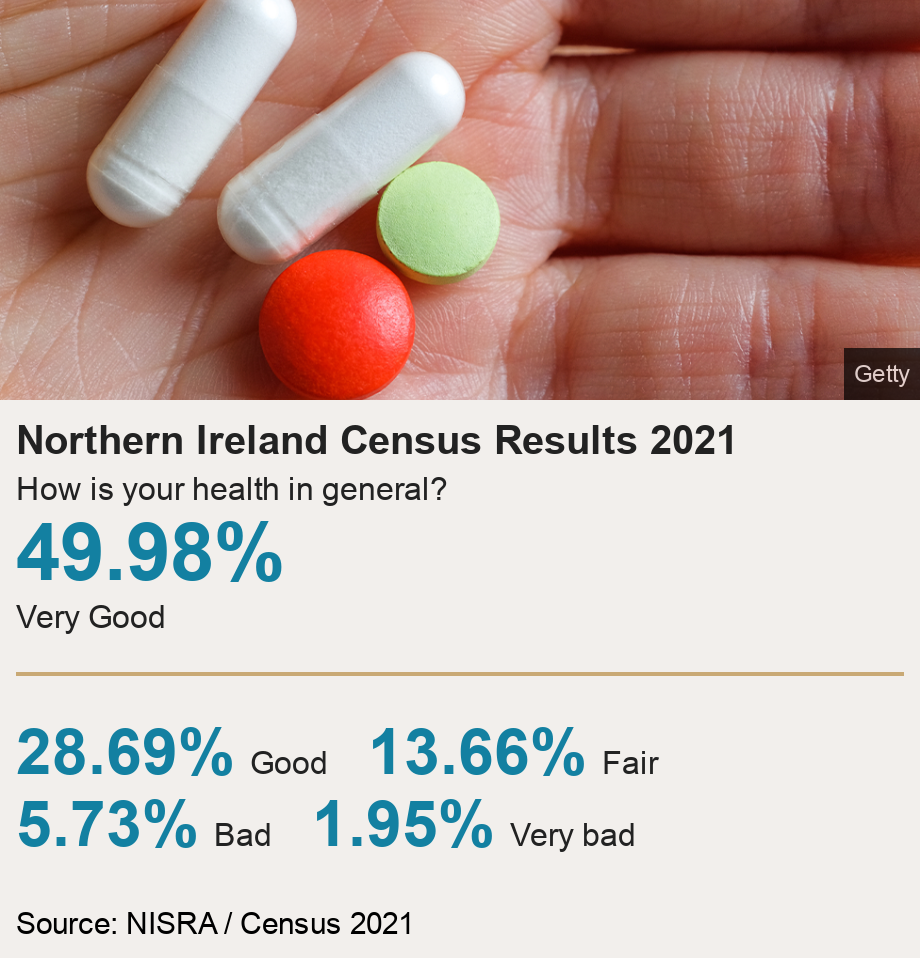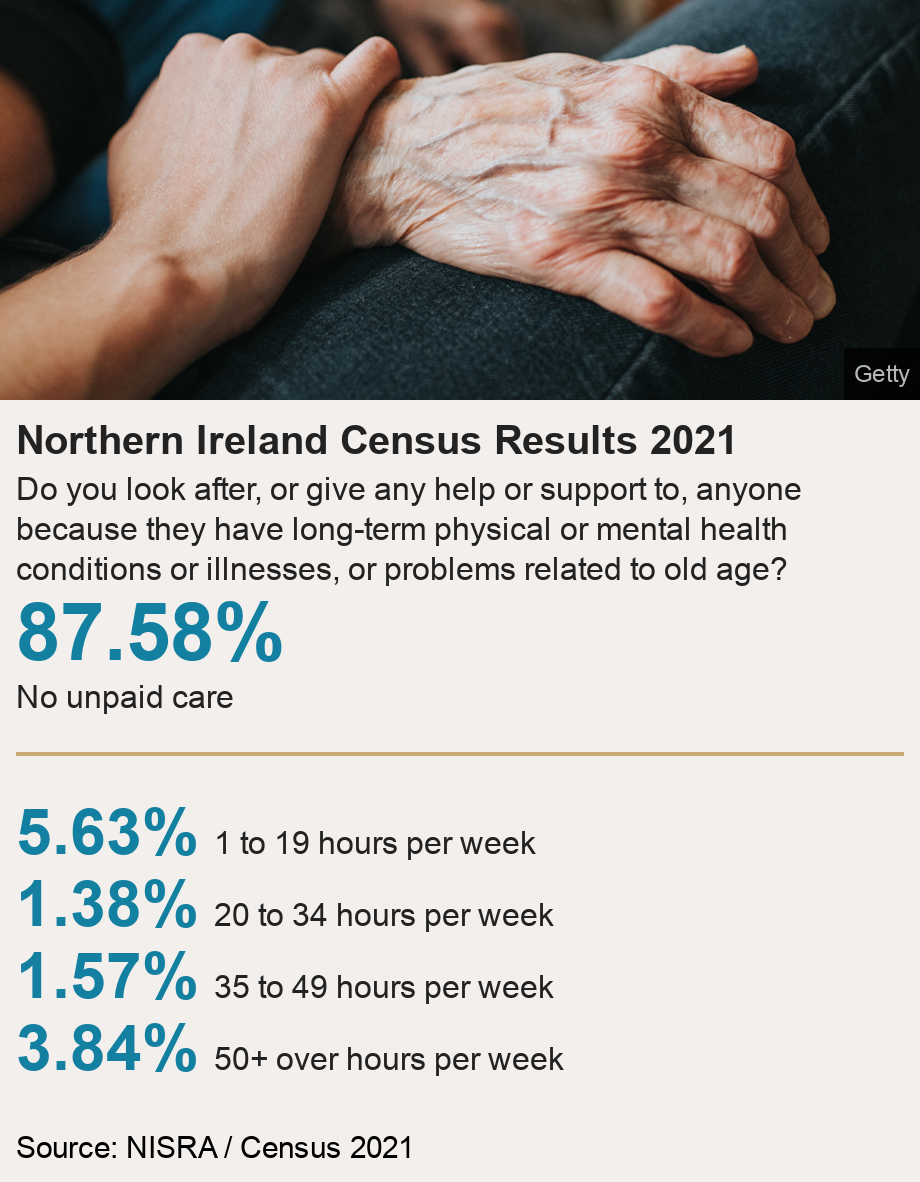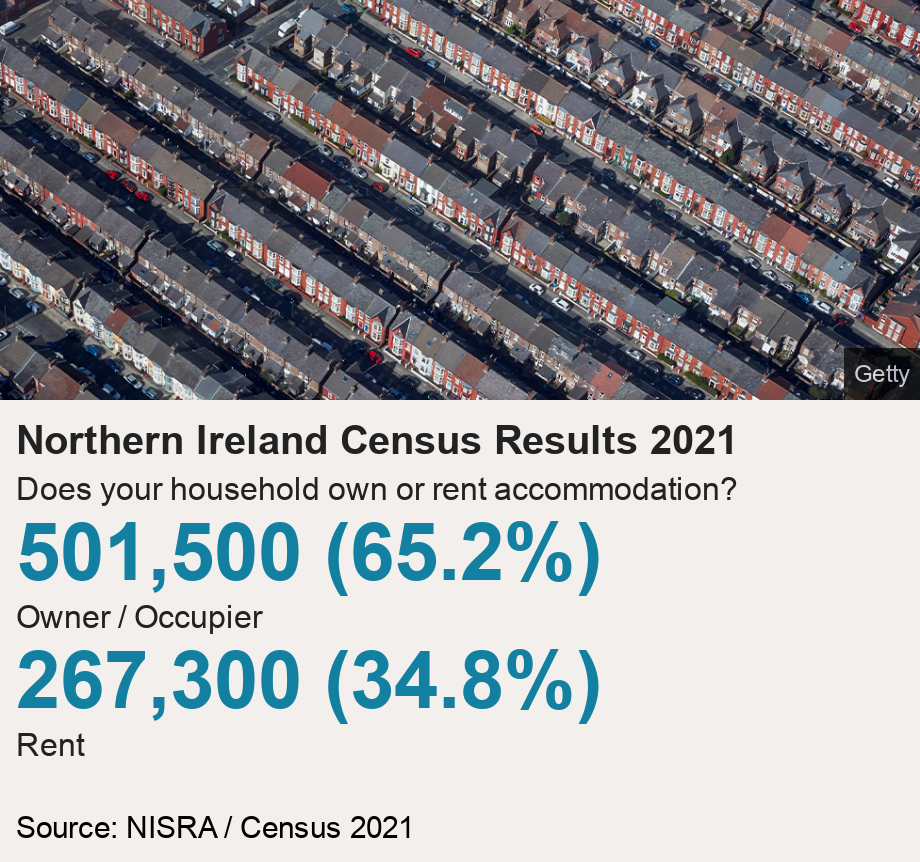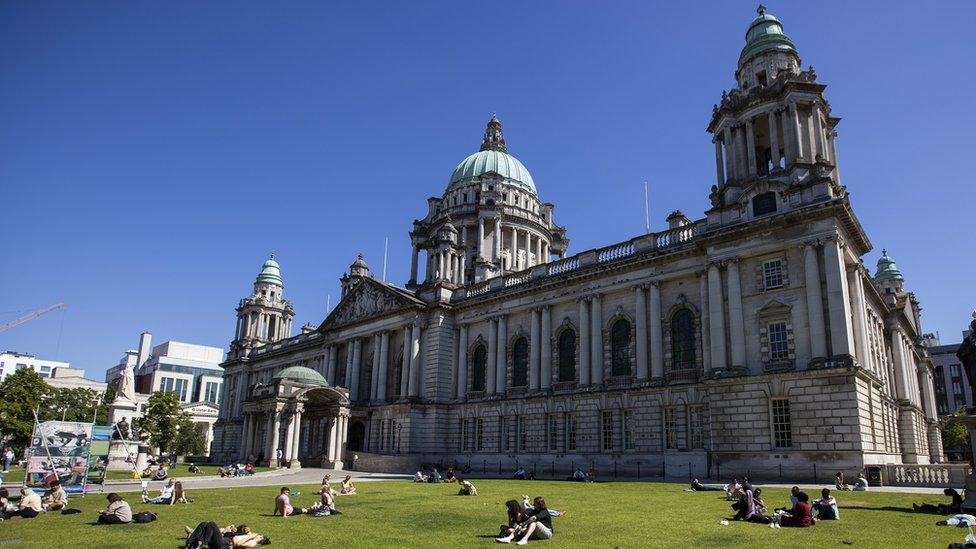Census 2021: Number of NI people with bad health rises
- Published

The number of people who have reported bad health in Northern Ireland has risen, according to the latest census data.
The 2021 figures found 7.7% of people recorded bad health, compared to 5.6% in 2011.
That means that just under four out of every five people reported good health, or 78% of the population.
The change is driven by the aging population of Northern Ireland, according to the census.
It also found one child in every 20 in Northern Ireland has autism or Asperger's syndrome.

The findings, which have just been released, show 19,000 children up to 14 years old were recorded as having the conditions.
A further 16,000 people also have the conditions, bringing the total figure in the population to 35,000.
The census data shows one in eight people in Northern Ireland provided unpaid care at the time the figures were recorded.
Of those the majority of people providing unpaid care were aged between 40 and 64.

The figures show 2,600 children aged five to 14 provided unpaid care.
There are now four times as many cars and vans available to households in Northern Ireland compared to 50 years ago.
1.067m cars or vans were recorded in the latest census, up from 271,500 in 1971.
It is the first time more than 1m cars have been recorded as owned or available for use by households.
Eighty percent of households had a car or van available, with more than 40% of those having access to more than one.

It is the first time a Northern Ireland census has shown more than half a million people owned their home, either with a mortgage or outright.
In total, nearly two-thirds of households owned their homes, with just over a third renting.
The number of households privately renting has nearly doubled since the 1981 census, when less than 10% of households rented their homes.

Oil fired central heating is still the most common energy source for households in Northern Ireland, with more than 60% having access to this type of system, either solely or in combination with another system.
A third of households used gas central heating, with more than 40% of those who used a mains gas supply living in Belfast.
There are 2,400 households in Northern Ireland which have no access to central heating.
It is the first time a question on renewable energy systems has been asked in the census.
In total, more than 5% of households had at least one kind of renewable energy system installed, the most common being solar panels.
The 2021 census data is being released in stages.
Earlier this year the census findings revealed that, for the first time, there are more people from a Catholic background in Northern Ireland than Protestant.
The proportion of the resident population which is either Catholic or brought up Catholic is 45.7% compared to 43.48% Protestant.
In terms of national identity, 31.9% said they had a British-only identity, while 29.1% said Irish-only and 19.8% said Northern Irish-only.
The figures are published by the Northern Ireland Statistics and Research Agency (Nisra).
The census, which was held last year, was the first since the UK voted in 2016 to leave the European Union.
Related topics
- Published22 September 2022
